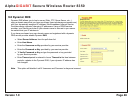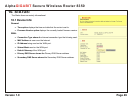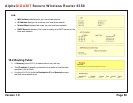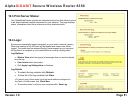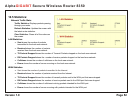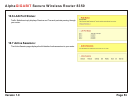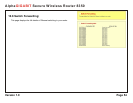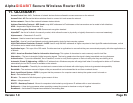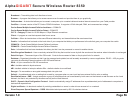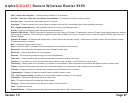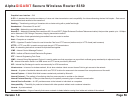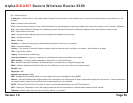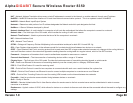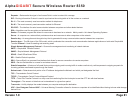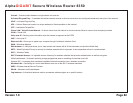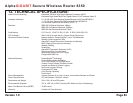
Broadcast – Transmitting data in all directions at once
Browser – A program that allows you to access resources on the web and provides them to you graphically
Cable modem – A device that allows you to connect a computer up to a coaxial cable and receive Internet access from your Cable provider
Card Bus – A newer version of the PC Card or PCMCIA interface. It supports a 32-bit data path, DMA, and consumes less voltage
Carrier Sense Multiple Access/Collision Avoidance – CSMA/CA
Carrier Sense Multiple Access/Collision Detect – CSMA/CD
CAT 5 – Category 5. Used for 10/100 Mbps or 1Gbps Ethernet connections
Client – A program or user that requests data from a server
Collision – When do two devices on the same Ethernet network try and transmit data at the exact same time.
Cookie – Information that is stored on the hard drive of your computer that holds your preferences to the site that gave your computer the cookie
CSMA/CA – Carrier Sense Multiple Access/Collision Avoidance
CSMA/CD – Carrier Sense Multiple Access/Collision Detection
Data – Information that has been translated into binary do that it can be processed or moved to another device
Data Encryption Standard – Uses a randomly selected 56-bit key that must be known by both the sender and the receiver when information is exchanged
Data-Link layer – The second layer of the OSI model. Controls the movement of data on the physical link of a network
Database – Organizes information so that it can be managed and updated, as well as easily accessed by users or applications. DB-25 – A 25 ping male
connector for attaching External modems or RS-232 serial devices
DB-9 – A 9 pin connector for RS-232 connections
dBd - decibels related to dipole antenna
dBi - decibels relative to isotropic radiator dBm - decibels relative to one milliwatt
Decrypt – To unscramble an encrypted message back into plain text
Default – A predetermined value or setting that is used by a program when no user input has been entered for this value or setting
Demilitarized zone – DMZ. A single computer or group of computers that can be accessed by both users on the Internet as well as users on the Local
Network, but that is not protected by the same security as the Local Network.
DHCP – Dynamic Host Configuration Protocol. Used to automatically assign IP addresses from a predetermined pool of addresses to computers or
devices that requests them
Digital certificate – An electronic method of providing credentials to a server in order to have access to it or a network
Direct Sequence Spread Spectrum – DSSS. Modulation technique used by 802.11b wireless devices
Version 1.0
Page 56
Alpha Secure Wireless Router 8350GIGABIT



